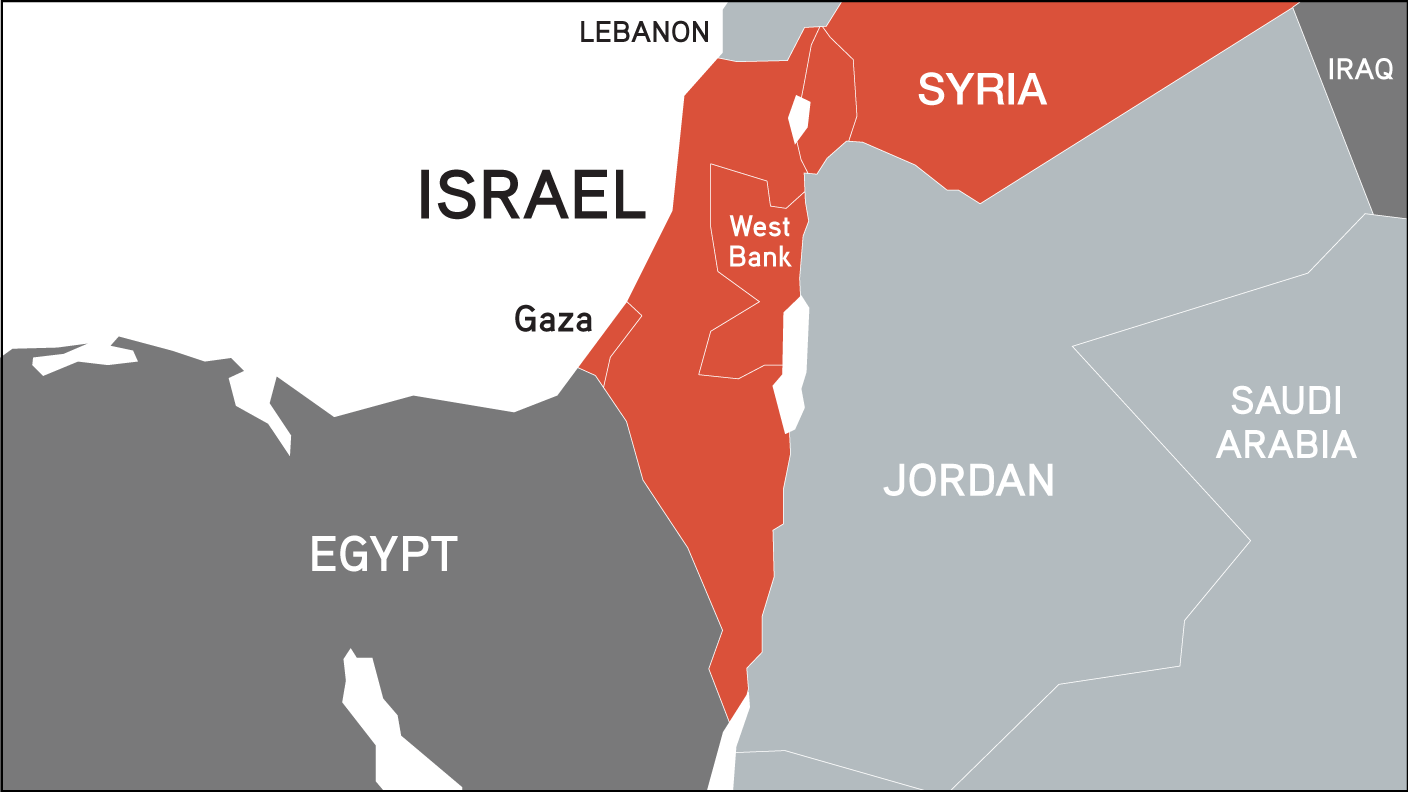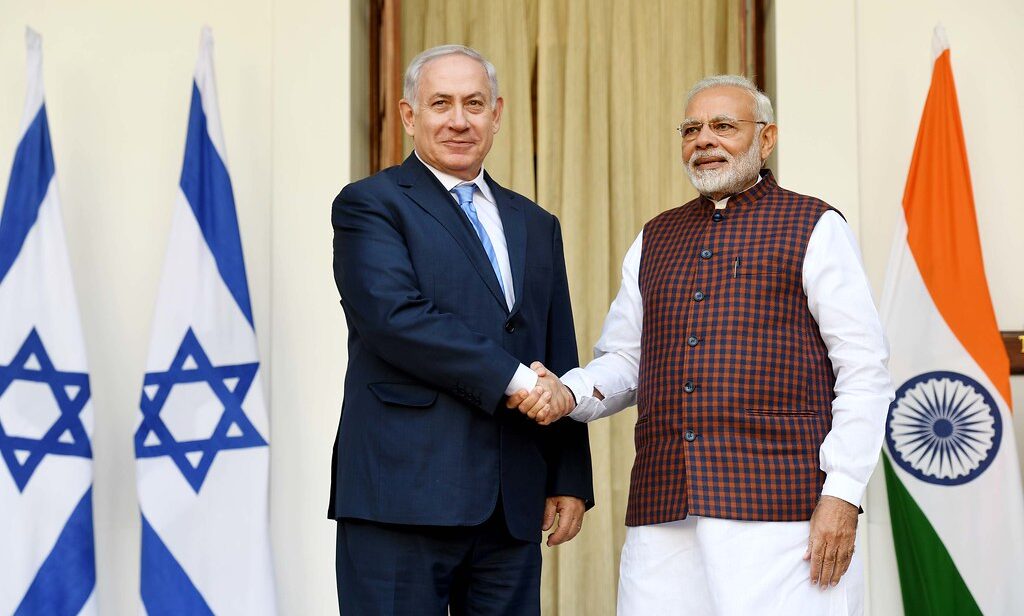Another development in the Israel Palestine conflict, India endorses a Two State Solution
A conflict that took a violent turn on October 7 has been ongoing for the last 75 years between the regions of Israel and Palestine. More than just regions, this issue has its roots in communal, religious, and even ethnic differences.
And among these two different sides, various nations and communities have chosen which side to support. Israel has a majority Jewish population while Palestine is home to mostly Muslims.
 There are around 84 countries that have supported Israel since the conflict broke out, some of the most influential ones are:
There are around 84 countries that have supported Israel since the conflict broke out, some of the most influential ones are:
- The U.S.A
- France
- The U.K
- Germany
- Canada
- The European Union collectively
- Australia
In contrast to this, the prominent countries supporting Palestine are:
- Saudi Arabia
- United Arab Emirates
- Ireland
- Qatar
- Pakistan
- Turkey
- Bangladesh
- Iran
The countries supporting Israel have voiced that the attacks of Hamas on October 7 were violent terrorist attacks and Israel has a right to defend itself. The countries supporting Palestine have raised issues with the human rights violation from the other side and demand a nation free of “Israel’s encroachment”.
 There are also supporters of both the countries that want a two-state solution
There are also supporters of both the countries that want a two-state solution
- China
- India
- Germany
- Saudi Arabia
- Canada
After the carnage of almost six months in the Gaza Strip of Palestine, which saw over 30,000 deaths, numerous injuries, unimaginable trauma, and all kinds of atrocity; almost all countries have demanded a solution except for two. That is Israel and Iran.
The former recognizes the whole territory of the West Bank and Gaza as its own and justifies its attacks as a defense. Iran on the other hand rejects the two-state resolution, voicing for a single state of Palestine to exist in the land. The two countries also came to blows when Iran fired missiles into Israel, making their stand on the issue very clear.
Meanwhile, one country whose stand has been very unclear and confusing has been India. In April, India abstained from voting for a resolution by the Human Rights Council that called for an immediate ceasefire in Gaza.
But now Ruchira Kamboj, the country’s Permanent Representative to the UN has expressed support for Palestine to become a permanent member of the UN and be recognized as a State. She even went on to say that India supports a two-state solution where Palestine is free with secure borders, and Israel also has its security needs fulfilled.
India’s population has also been as divided on this issue as the rest of the world community. The country’s Twitter has seen both #IndiastandswithIsrael and #IndiastandswithPalestine at the same time. However, this newly finalized stand of India has many implications for its global diplomatic relations.
History of India with Palestine

India was one of the first countries that recognize Palestine as a nation after they declared their independence from British rule. As a sufferer of colonialism both the countries have shared solidarity in history.
Relations with Palestine have also gone beyond the political arena and into the establishment of socio-cultural bonds. And as far as economic relations are concerned, India has provided financial relief to the region by donating $10 Million.
India’s connection with Palestine goes further back to the nation’s freedom struggle, when the pioneer of the movement Mahatma (M.K) Gandhi stated, “Palestine belongs to the Arabs”. He opposed the establishment of a Jewish state in the region and was of the opinion that Jewish people could stay in Palestine with good will of the existing Arab population and not through the forced endorsement of the British.
Around 2003 under the Atal Bihari Vajpayee government, the foundation of the Embassy of Palestine was laid by the then President of Palestine, Mahmoud Abbas.
Throughout India’s shared history with Palestine, both nations have enjoyed each other’s solidarity, until the military relations of India grew stronger with Israel.
History of India with Israel

India has always been a champion of non-alignment throughout the history of conflicts between other nations. While in the Middle East, its diplomacy has been mostly pro-Arab.
As a result of this, it was only in 1992 that India finally opened up an embassy in Israel. But even before this, the relations between both countries had started shifting during the 1971 and 1999 Indo-Pak war.
Though India recognized Israel’s statehood in the 1950s, it wasn’t until the war with Pakistan in 1971 that both countries established bilateral ties. During this time Israel provided India with weaponry, ammunition, and even intelligence.
This has escalated into joint military training and intelligence sharing against terrorism. As of now, India is the largest importer of arms from Israel. Trading has also extended to the areas of agriculture, technology, and information.
The current Indian government has also cited that both countries have suffered through “Islamic terrorism”.
As a result of this strong military bond of India with Israel, the nation’s relations with Palestine had taken a back seat.
But even though India has strong relations with both countries, since of late the nation has maintained mostly a neutral or a pro-Israel stand by abstaining from voting for a ceasefire.
So why is that the stance has suddenly changed?

India as a republic state has always advocated for a two-state solution, but with unwavering support to the Palestine cause. But this stance had taken a pro-Israel turn when the current government came to power.
The irony of the situation is that under this government India’s relations with both Israel and the Arab League were strengthened.
So the possible reasons for this concrete stand in the issue could be reasons such as:
– Pressure from the Arab League:
Pressure from the Arab League could be one cause. They have the upper hand when it comes to trading with India. There is a trade deficit of $25.5 billion. 60% of crude oil, infrastructure, and other energy imports are from the Arabian country.
Foreign investments from these countries are also quite high which could be a noose tightening around India’s neck.
Apart from that millions of Indians are engaged in the service sector in countries like Saudi Arabia, UAE, and Qatar. Foreign remittances from NRIs living in these countries are quite high. So there is a risk of losing this if India were to go completely pro-Israel.
– Shifting global temperament

After the situation of October 7 when Hamas attacked many Israelis, where a lot of civilians were killed and there are still hostages kidnapped by the terror organization, most of the nations condemned the Palestinian side.
The subsequent attacks from Israel were also justified as their right to defend. Many of the influential countries voiced their support and sympathy to the nation when they first started attacking the Gaza Strip.
But barely a month into the situation around 6000 Palestinians had been killed by the attacks, which mostly included children. Hospitals were targeted and bombed.
The supply of food, water, and electricity was stopped in Gaza. A mass exodus of Palestinians followed in October.
Massive protests and boycotts from their own citizens had many of the countries first supporting Israel, changing their tunes. This includes India as well. The nation already has pressures from the Gulf countries and the changing trends of the Western world are reason enough for India to start supporting a two-state solution.
– Turmoil in global markets
Crisis in the Middle East has always been followed by a turbulent global market. High oil prices, spikes in safe assets such as gold, currency depreciation, and inflation make for high-interest rates and negative impacts on the stock market.
For India as well, this prolonged conflict could adversely affect the domestic market. India’s trade relations with Israel are also quite strong. Exports and imports would be even more affected if the conflict goes on for longer.
So from a financial perspective, a peaceful terrain with no conflicts is better for the global as well as domestic markets.
– Humanitarian reason

Keeping the financial aspect of it aside, mass destruction of life and property also needs humanitarian intervention.
The atrocious condition of the Gaza Strip and the unending attacks could also be a reason why even after abstaining from voting for a ceasefire, India has taken up this stance to support peace from both sides.
The general population of India also seems to sympathize with the Palestinian side and their sufferings. A few months back workers of a port refused to help load weapons being transported to Israel.
India has also provided human aid to Palestine including medical supplies, blankets, and disaster management kits.
Given all this, it is not too far-fetched to assume that perhaps the conscience of the Indian diplomats in the face of human suffering was one of the reasons for this step.

The conflict between Israel and Palestine has surpassed generations. With no resolution in sight, civilians have had to lose their lives in a war of power. So, in that scenario, India needs to take up this issue and be a pioneer in finally bringing forth a peaceful solution. Because calling oneself “Vishwaguru” isn’t enough, the nation also needs to prove itself as one.



